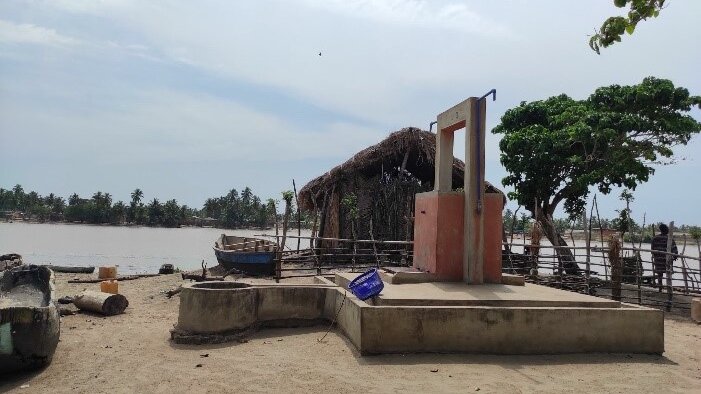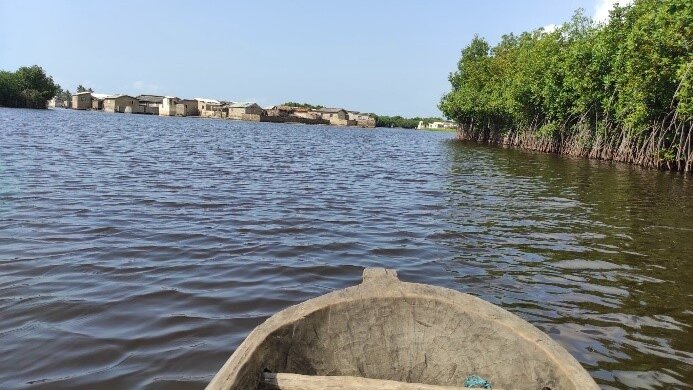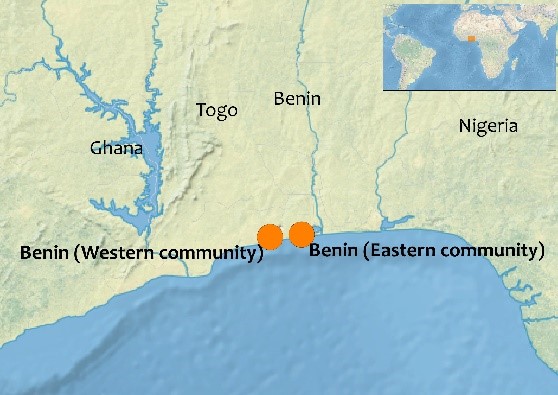Rural communities in Benin - West Africa


Description

Principal investigator:
- Augusto Dalla Ragione
Team members:
- Nadège Adikodé
- Jean Akpo
- Marina Djekinnou
- Daniel Redhead
- Cody T. Ross
Research since: 2022
Site Details
We have recently begun to conduct research in two rural villages in south-western Benin. The first village sits on a peninsula in the lagoon of Grand-Popo–the largest market town in the region–that leads to the Atlantic ocean through the delta of the Mono river, also known as Bouche du Roi (Mouth of the King). The second village is more rural, and located in the Ouidah municipality. The villages consist of several ethnic groups, and the main languages spoken in the area are Xwla, Xuéla, and Mina. The region is low elevation, and a tropical climate that allows for the production of crops, such as maize, cassava, niébé, plantain, and rice. The village near Grand-Popo is a mixed-subsistence community, where people’s principle livelihoods are based on agricultural labour and fishing. There are a small set of pastoralists in the area and some individuals are beginning to take part in the growing tourist economy in the region. The main economic activity in Ouidah is fishing. However, there is a growing tourist trade in and around the community due to the area’s historical connection to the slave trade–with the area functioning as a major post for transatlantic slave trade for around two centuries, up until the nineteenth century. The majority religions for both villages are Vudon (Voodoo) and Christianity, and the Ouidah region is considered the spiritual capital of the Vudon religion.
Research
Our research will examine the ways in which different types of social relationships (i.e., social networks) form within the two communities, and assess how network structure and individual position within these networks guides (and is guided by): (a) fertility beliefs and (b) social and economic inequality. To do this, we are collecting data on the communities’ social networks (e.g., friendships, material support, social support), demography, kinship, cultural beliefs and reproductive behaviour, and material wealth from all participating community members (N ~ 700-800 adults in each community). Alongside this, we will conduct network-structured (RICH) economic games, and peer-report social status and reputation data. We plan multiple waves of data collection, where we will repeat our measurements.